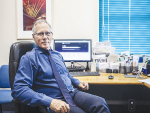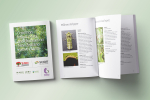There are calls to adopt a newly proposed national telehealth programme to better service rural health needs.
It is also hoped that the new technology will help offset the current health workforce crises and eliminate decadeslong inequities in patient care.
The brainchild of the New Zealand Telehealth Forum (NZTF), PASE – the Patient Anywhere Specialist Everywhere project – is a centralised model of care with a nationwide rostering system for specialist doctors, GPs, nurses and health workers. It aims to deliver timely care to patients – regardless of location.
A report outlining PASE was recently presented to MPs and leading health officials from both Health NZ and the Maori Health Authority in the past few weeks.
The concept is that of a cloud based, national booking system and shared health record.
It uses information and communications technology to bring medical expertise anywhere and anytime – remotely.
“PASE could help solve elements of the chronic health workforce shortage in Aotearoa,” says NZTF chair and rural hospital and ED specialist Dr Ruth Large.
“With a centralized health system in Health NZ and the Māori Health Authority solutions such as the PASE model can make a real difference to the lives of health professionals, patients and their whānau.”
Large says PASE would be cost-effective to establish, train for and run, providing a ‘win-win’ for health professionals and patients by providing quick, equitable and accurate treatment for patients. She adds it will also increase support infrastructure for healthcare providers – as well as boosting communications between families and medical teams.
“While not a panacea for all specialist workforce shortages, PASE would enable more spread of existing services, supporting clinicians to access professional development, continue to work where they live and enable colleagues to work at the top of their scope with specialist support.”
New Zealand Telehealth Leadership Group member Andrew Panckhurst says pilot telehealth projects carried out across New Zealand have shown the IT technology and know-how already exist to successfully roll out PASE.
“The PASE model would be an excellent fit for Aotearoa, supporting not just gaps in medical care but mental health, palliative and cancer care, even speech therapy and optometry.
We now have the prospect of a further potential health crisis looming in the form of Long Covid, which requires multiple pathological processes and specialty treatment.”
Pankhurst believes a PASE system will allow patients everywhere to receive the levels of multi-disciplinary specialist care they require.
“It’s vital that both Health NZ and the Māori Health Authority take a whole system view when considering a national telehealth care model in order to avoid potential inequities.”
The NZTF says a business case is now needed to determine the exact costs and IT infrastructure required to get a PASE system up and running here.



















